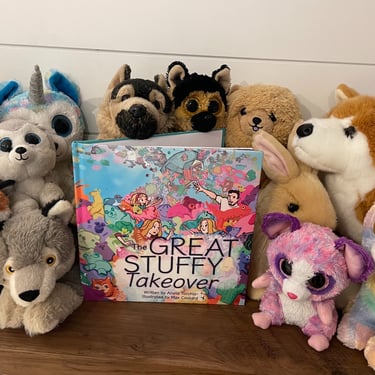Deciding Between Traditional Publishing and Self-Publishing
Many authors struggle with deciding between traditional and self-publishing. Understand the pros and cons of both options so that you can make the best decision for your book.
Is self-publishing or traditional publishing right for you?
Self-Publishing 101
Self-publishing puts you in control of your novel. You are the publisher, the owner of the rights to the book, the ultimate decision-maker. For some authors, this is their preferred path to publishing, especially if they want to retain creative control of their work. You're not going to have an editor or publisher dictating major edits, pushing an agenda, changing your title and taking liberties with the plot or characters that you may not be thrilled with.
Another benefit is time to publication. Traditional publishing can be a painfully slow process. With self-publishing, your book can be uploaded and available for sale within a day or two, provided you have all your files and cover art ready to go. Keep in mind, a good self-published book still takes meticulous planning and execution to become a professional final product, but it's far faster than the timelines associated with traditional publishing (see below).
However, as with most things, there are also drawbacks. If you self-publish, you are on your own! That means you are your own publicist, promoter, production team, designer, editor, etc. Of course, you can outsource certain tasks, but this will cost you. You won't be receiving an advance and you will have to pay for everything out of pocket. If you are savvy and can do a lot yourself, you can save some costs on this front. But it will be up to you to get your book into the hands of consumers. You will have to hustle and promote, and promote, and promote. If you're good at social media and SEO, you may be up for the challenge and be successful selling your books on your own. It all depends on how much effort you put into marketing your books.
Self-publishing is becoming a lot more common, and many great writers are choosing it as their preferred publishing option. However, given how easy it is to self-publish, this often results in a great deal of mediocre and poor-quality books being produced and printed, which gives self-publishing a bad name. Self-published books are also often excluded from literary awards and accolades.
Traditional Publishing 101
One of the biggest drawbacks of traditional publishing is time to publication. Most traditional publishers don't accept unsolicited manuscripts (meaning manuscripts from authors who do not have representation from a literary agent). Once your manuscript is ready (which will presumably take some time), it may take you several months to find a literary agent willing to take you on as a client. It will then take your agent several more months to find a publisher to offer you a deal. That's followed by time needed for the editors to do a thorough review, which can include making changes to your manuscript. Tack on time for cover designers, web designers, publicists, and final production, and you could be looking at several years from signing a book deal before your book hits store shelves.
As noted above, traditional publishing can leave you with a different manuscript than what you started with. The publisher will own the rights to the work and may be able to make significant changes, depending on the terms of your contract. As with any contract, it is important to have a lawyer review the terms. Your literary agent should also work in your best interest to secure the most favourable terms on your behalf.
The benefits of traditional publishing include being eligible for literary awards, possibly receiving an advance, and benefiting from the knowledge and experience of a publishing house, which helps with marketing and promotion, which means reaching more consumers and possibly selling more books. The amount of your advance (if any) and other benefits will also depend on the size of the publishing house (i.e., one of the Big 5 versus a small or mid-size publisher), so keep that in mind. Many traditional publishers are now also expecting authors to be involved in marketing their books, so you may have to do a little more legwork than you realize, even with a traditional publisher.
Lastly, traditional publishing is not for the faint of heart. It is extremely competitive, with most authors facing countless rejections before they get a book deal, if they ever get one. Literary agents and publishers receive thousands of submissions a year, so it's extremely important that your work be the best it can be and that it make a good first impression. Otherwise, it will be relegated to the "No" pile along with hundreds of others. Of course, if your book is great, you could get lucky on your first query! It's up to you, and your book.
A word of caution...
Beware of vanity publishers! These publishers promise to publish your book...for a price! They are not very selective and will publish almost anything for a fee. A true publisher will never charge an author up front - they only get paid if your book sells, so it's in their best interest to ensure that they are publishing quality material. Hence, the reason traditional publishing is so hard to break into. Many authors have been burned by vanity publishers who have taken thousands of dollars from them and barely sold a single book. Do your due diligence! Some of these companies may claim to be "hybrid" publishers to avoid the negative connotations of being labelled a vanity publisher, so research is your best friend! While some "hybrid" publishers are legit, make sure they are upfront about what they are going to realistically deliver so there are no surprises.
So, now it's up to you! Whichever path you decide is right for you, I wish you the best of luck with your writing!




